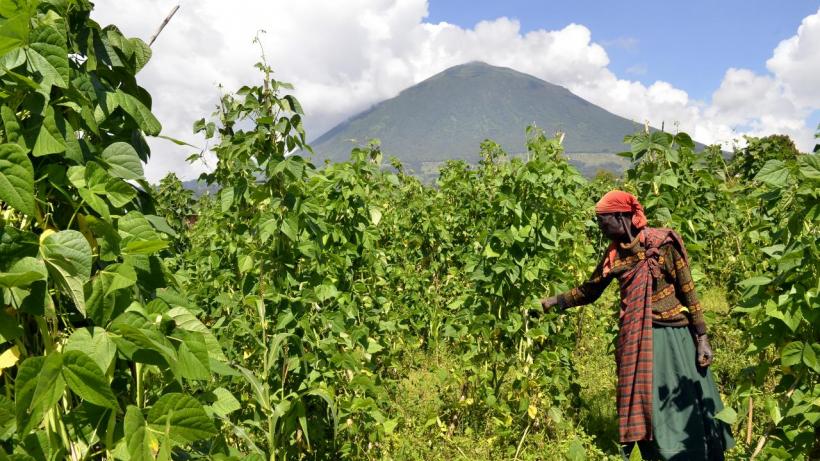
Knowledge is power: The role of information in agricultural technology adoption
Agricultural production is a key driver of rural employment, industrialisation, and growth, accounting for over 25% of GDP in many sub-Saharan Africa countries. IGC research has examined the constraints and opportunities in encouraging the adoption of modern agricultural technologies, which has huge potential to increase crop yields and raise living standards.
What is the challenge?
The Green Revolution in the 1960s-70s brought improved technologies and productivity gains to farmers in many developing countries but largely bypassed sub-Saharan Africa. Numerous studies have demonstrated large potential productivity gains from agricultural technologies, such as hybrid seeds and fertiliser, but their usage remains strikingly low in Africa.
Addressing the problem
IGC research has focused on the role of knowledge and information in supporting technology uptake by farmers. A study in Uganda examined the problem of low-quality fertilisers and seeds – a major barrier to the uptake of these technologies, and a study in Pakistan tested an innovative approach to sharing information on veterinary services with livestock farmers.
Research results:
- Fake seeds and fertiliser discourage technology adoption. An IGC study in Uganda found that poor quality inputs was the norm in retail markets: on average, the most common fertiliser on the market has 33% less nitrogen content than advertised, and hybrid maize seed contains less than 50% authentic hybrid seed. These low quality inputs are hampering farmers’ productivity and profitability, with farmers often losing money from investing in these technologies. The study found that replacing these inputs with authentic hybrid seeds and fertiliser would yield average returns of over 50% for smallholder farmers (Bold et al., 2017, "Lemon Technologies and Adoption: Measurement, Theory and Evidence from Agricultural Markets in Uganda", The Quarterly Journal of Economics).
- Technology can help strengthen accountability. In rural Pakistan, an IGC pilot study tested the use of a mobile phone-based system requiring farmers to report whether artificial insemination of their livestock had succeeded, similar to the user rating system found on Amazon. The crowdsourced rating system motivated public-funded veterinarians to perform better with 27% higher success rates, and in turn, farmers were more likely to return to them for future services, suggesting that the system helped to strengthen government accountability.
Impact on policy
In Uganda, the government responded to IGC’s evidence on agricultural inputs by introducing a mobile e-verification programme led by the National Bureau of Standards to help farmers distinguish fake inputs from real ones, and endorsed plans to put quality seals on inputs to reduce counterfeits supplied to farmers. The government cited the study and its response to the findings in the Background Paper to the FY 2017-18 National Budget. Concerns raised by the study have also lead donors to respond: DFID Uganda supported the inclusion of an indicator on the quality of agricultural inputs in the priority areas under the National Partnership Framework for the high-level policy dialogue between donors and the government.
Mobile applications such as the one tested in Pakistan show promise in reducing the informational barriers to agricultural technology adoption. With many different products and business models under development, and research findings on the impacts beginning to emerge, they may prove to be effective solutions in Africa and elsewhere.
- Growth brief - Seeding success: Increasing agricultural technology adoption through information
Kelsey Jack and Julia Tobia
- Dealing with fake agricultural inputs
Tessa Bold and Jakob Svensson
- Coordinating farmers with cellphones: Technology innovation in livestock extension in Pakistan
Arman Rezaee, Syed Ali Hasanain, and Yasir Khan

